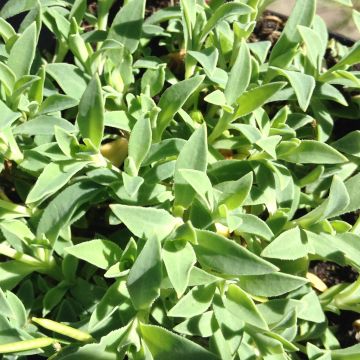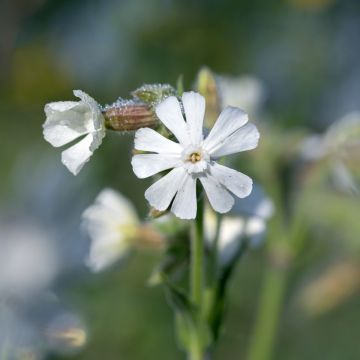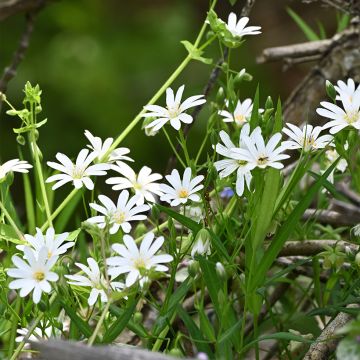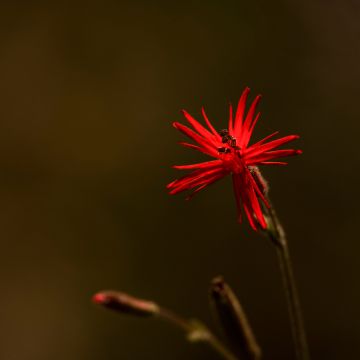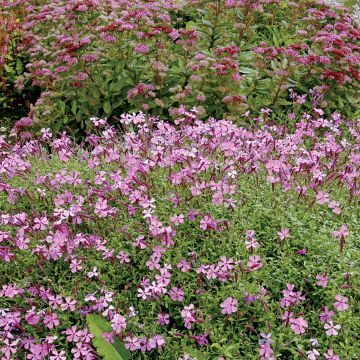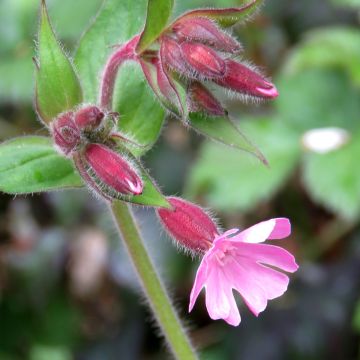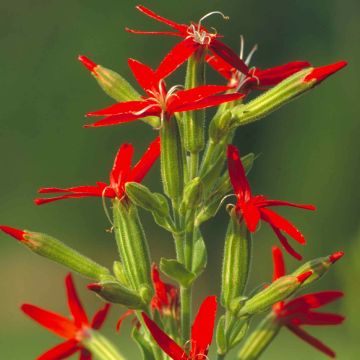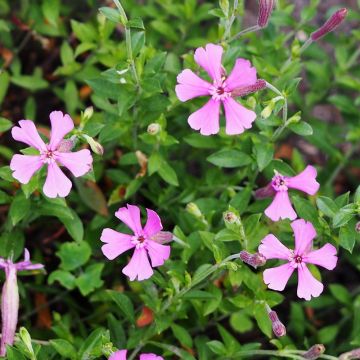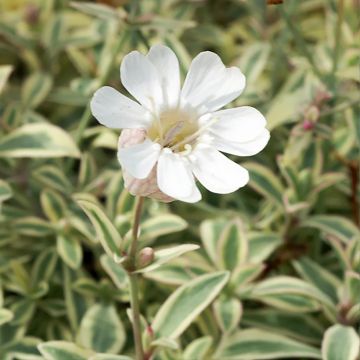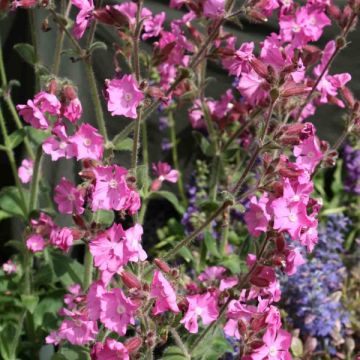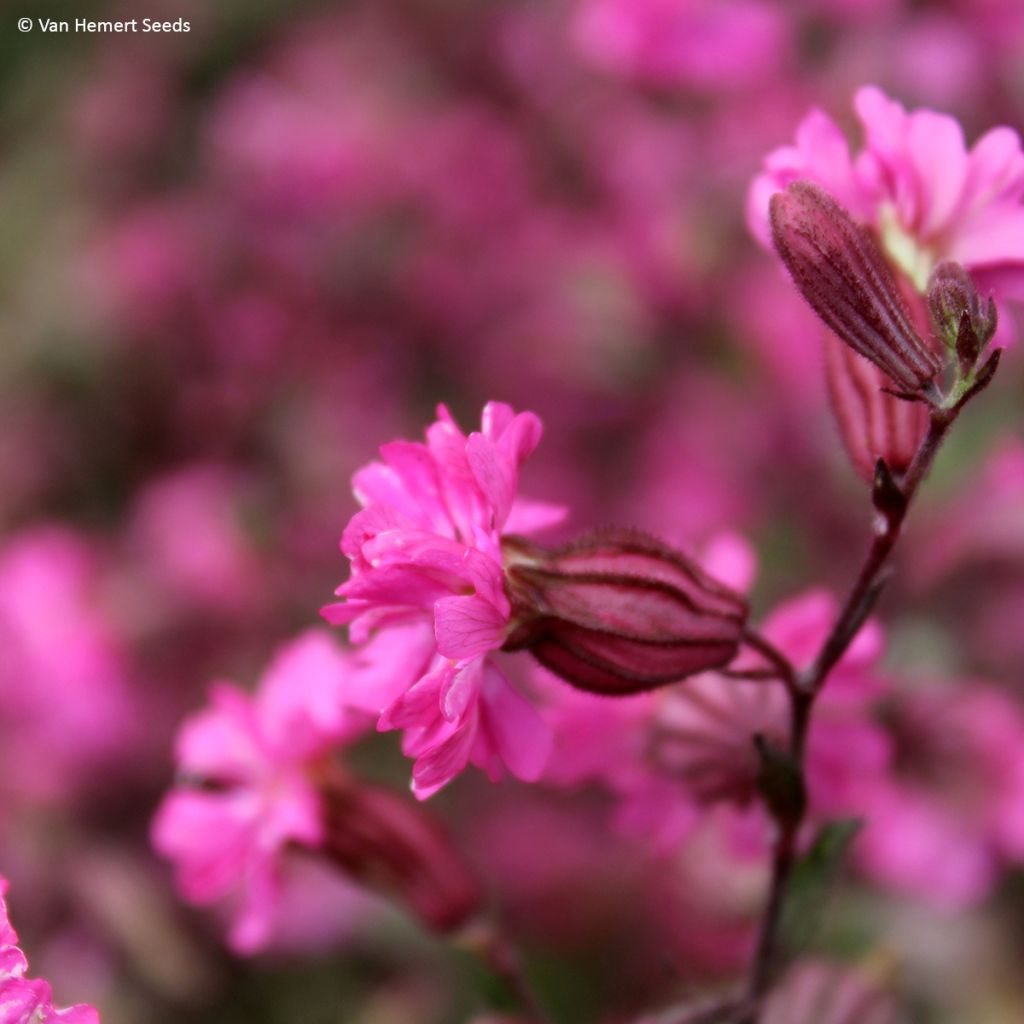

Silene pendula Sibella Carmine
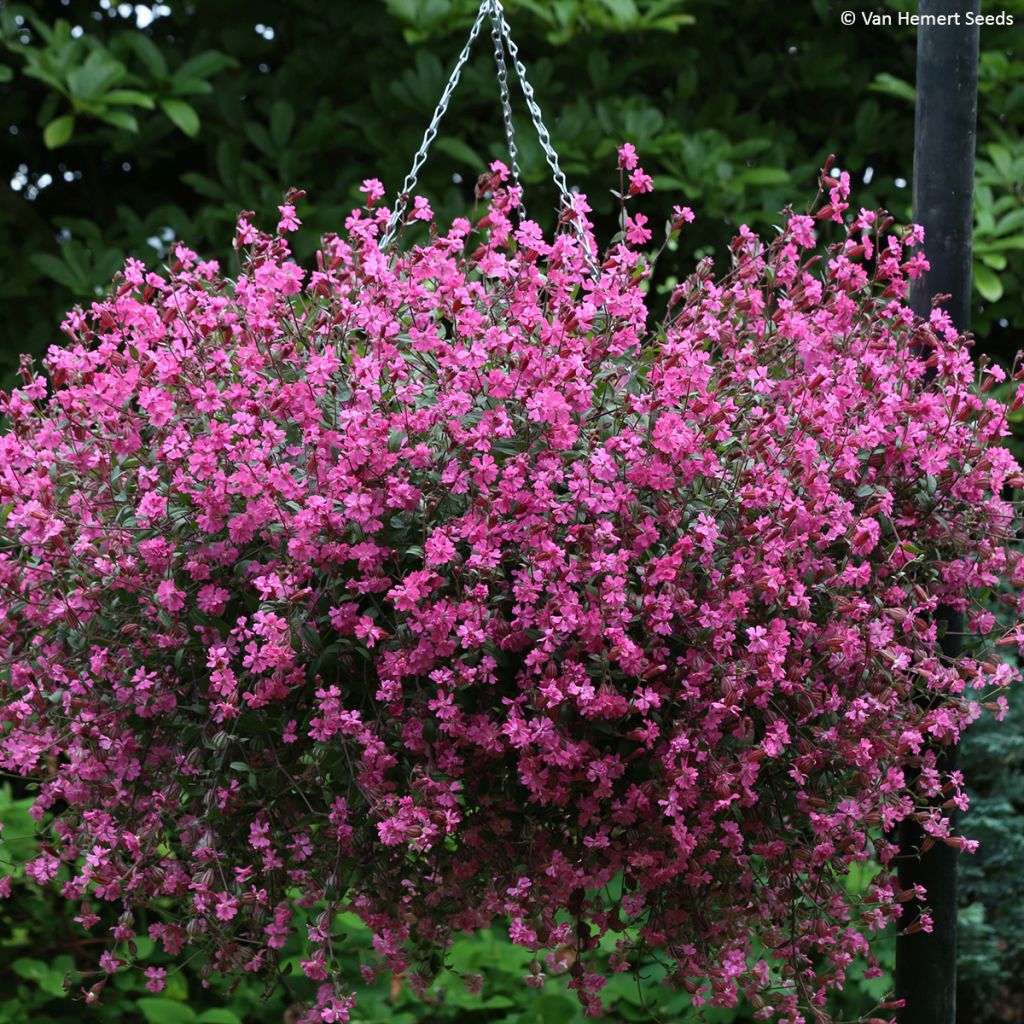

Silene pendula Sibella Carmine
Silene pendula Sibella Carmine
Silene pendula Sibella Carmine
Drooping catchfly 'Sibella Carmine'
This item cannot be shipped to the selected country
Dispatch by letter from €3.90
More information
Schedule delivery date,
and select date in basket
This plant carries a 6 months recovery warranty
More information
We guarantee the quality of our plants for a full growing cycle, and will replace at our expense any plant that fails to recover under normal climatic and planting conditions.
Seed-only orders are dispatched by sealed envelope. The delivery charge for seed-only orders is €3.90.
Does this plant fit my garden?
Set up your Plantfit profile →
Description
Silene pendula 'Sibella Carmine' is an excellent variety that is remarkably colourful. The plant forms a rounded and semi-drooping clump that disappears under a multitude of intense carmine-pink flowers for several weeks. This versatile catchfly can be used in bed borders, planters, and hanging baskets. Sow the seeds in spring for summer flowering or in late summer for flowering the following spring. It prefers a position in the sun, in rich, well-drained soil.
Silene pendula 'Sibella Carmine' is a 2019 Dutch horticultural variety from Van Hemert & Co dating, which won the Fleurosect Gold Medal in 2020 for its outstanding performance. This plant belongs to the Caryophyllaceae family, and is a cousin of carnations. It has a very fast growth rate, and can be grown as a biennial or annual. 'Sibella Carmine' forms a rounded, regular clump, measuring 35 to 40cm (14 to 16in) in height, with a slightly wider width. Its slightly drooping stems bear small, elliptical to lanceolate medium green leaves, 1 to 3cm (1in) long. Flowering takes place in spring (May to June) or summer (July to September), lasting several weeks. The faded flowers fall off on their own without the need to cut them. Each flower is 1 to 2cm (1in) in diameter and consists of 5 spatulate petals curled at their tips. This corolla is bright pink in colour and is surrounded at the base by a swollen, reddish-purple calyx.
Silene pendula 'Sibella Carmine' forms a dazzling cascade of flowers, creating an explosion of colour on balconies or in gardens. Silenes deserve a home in every garden! These excellent summer-flowering plants are perfect for sunny beds. They bloom in abundance and ask for little in return. 'Sibella Carmine' looks wonderful with grasses, especially Muhlenbergia capillaris with pink spikes. Plant it near fragrant rose bushes and Chinese peonies. It provides a sublime display in pots on patios and balconies, and contrasts beautifully with blue lobelia.
Report an error about the product description
Flowering
Foliage
Plant habit
Botanical data
Silene
pendula
Sibella Carmine
Caryophyllaceae
Drooping catchfly 'Sibella Carmine'
Cultivar or hybrid
Other Silene - Campion
Planting and care
Sowing
Sow the seeds in pots or trays in spring or autumn, away from the cold. The seeds germinate in 14 to 18 days at a temperature of 20 to 22°C (68 to 71.6°F).
Sow on the surface of special seedling soil and cover with a pinch of very fine compost or vermiculite. Give the seeds light, as this helps germination. When the seedlings are large enough to be moved, transplant and grow them away from the cold until they are large enough to be moved outside.
Planting
Depending on the sowing season, plant in the ground or in pots. Plant in spring for seeds sown in autumn, or in autumn for seeds sown in spring.
It thrives in fairly moist soils that are fertile, well-drained, light, and loose. It likes full sun.
Sowing period
Intended location
This item has not been reviewed yet - be the first to leave a review about it.
Haven't found what you were looking for?
Hardiness is the lowest winter temperature a plant can endure without suffering serious damage or even dying. However, hardiness is affected by location (a sheltered area, such as a patio), protection (winter cover) and soil type (hardiness is improved by well-drained soil).

Photo Sharing Terms & Conditions
In order to encourage gardeners to interact and share their experiences, Promesse de fleurs offers various media enabling content to be uploaded onto its Site - in particular via the ‘Photo sharing’ module.
The User agrees to refrain from:
- Posting any content that is illegal, prejudicial, insulting, racist, inciteful to hatred, revisionist, contrary to public decency, that infringes on privacy or on the privacy rights of third parties, in particular the publicity rights of persons and goods, intellectual property rights, or the right to privacy.
- Submitting content on behalf of a third party;
- Impersonate the identity of a third party and/or publish any personal information about a third party;
In general, the User undertakes to refrain from any unethical behaviour.
All Content (in particular text, comments, files, images, photos, videos, creative works, etc.), which may be subject to property or intellectual property rights, image or other private rights, shall remain the property of the User, subject to the limited rights granted by the terms of the licence granted by Promesse de fleurs as stated below. Users are at liberty to publish or not to publish such Content on the Site, notably via the ‘Photo Sharing’ facility, and accept that this Content shall be made public and freely accessible, notably on the Internet.
Users further acknowledge, undertake to have ,and guarantee that they hold all necessary rights and permissions to publish such material on the Site, in particular with regard to the legislation in force pertaining to any privacy, property, intellectual property, image, or contractual rights, or rights of any other nature. By publishing such Content on the Site, Users acknowledge accepting full liability as publishers of the Content within the meaning of the law, and grant Promesse de fleurs, free of charge, an inclusive, worldwide licence for the said Content for the entire duration of its publication, including all reproduction, representation, up/downloading, displaying, performing, transmission, and storage rights.
Users also grant permission for their name to be linked to the Content and accept that this link may not always be made available.
By engaging in posting material, Users consent to their Content becoming automatically accessible on the Internet, in particular on other sites and/or blogs and/or web pages of the Promesse de fleurs site, including in particular social pages and the Promesse de fleurs catalogue.
Users may secure the removal of entrusted content free of charge by issuing a simple request via our contact form.
The flowering period indicated on our website applies to countries and regions located in USDA zone 8 (France, the United Kingdom, Ireland, the Netherlands, etc.)
It will vary according to where you live:
- In zones 9 to 10 (Italy, Spain, Greece, etc.), flowering will occur about 2 to 4 weeks earlier.
- In zones 6 to 7 (Germany, Poland, Slovenia, and lower mountainous regions), flowering will be delayed by 2 to 3 weeks.
- In zone 5 (Central Europe, Scandinavia), blooming will be delayed by 3 to 5 weeks.
In temperate climates, pruning of spring-flowering shrubs (forsythia, spireas, etc.) should be done just after flowering.
Pruning of summer-flowering shrubs (Indian Lilac, Perovskia, etc.) can be done in winter or spring.
In cold regions as well as with frost-sensitive plants, avoid pruning too early when severe frosts may still occur.
The planting period indicated on our website applies to countries and regions located in USDA zone 8 (France, United Kingdom, Ireland, Netherlands).
It will vary according to where you live:
- In Mediterranean zones (Marseille, Madrid, Milan, etc.), autumn and winter are the best planting periods.
- In continental zones (Strasbourg, Munich, Vienna, etc.), delay planting by 2 to 3 weeks in spring and bring it forward by 2 to 4 weeks in autumn.
- In mountainous regions (the Alps, Pyrenees, Carpathians, etc.), it is best to plant in late spring (May-June) or late summer (August-September).
The harvesting period indicated on our website applies to countries and regions in USDA zone 8 (France, England, Ireland, the Netherlands).
In colder areas (Scandinavia, Poland, Austria...) fruit and vegetable harvests are likely to be delayed by 3-4 weeks.
In warmer areas (Italy, Spain, Greece, etc.), harvesting will probably take place earlier, depending on weather conditions.
The sowing periods indicated on our website apply to countries and regions within USDA Zone 8 (France, UK, Ireland, Netherlands).
In colder areas (Scandinavia, Poland, Austria...), delay any outdoor sowing by 3-4 weeks, or sow under glass.
In warmer climes (Italy, Spain, Greece, etc.), bring outdoor sowing forward by a few weeks.

































